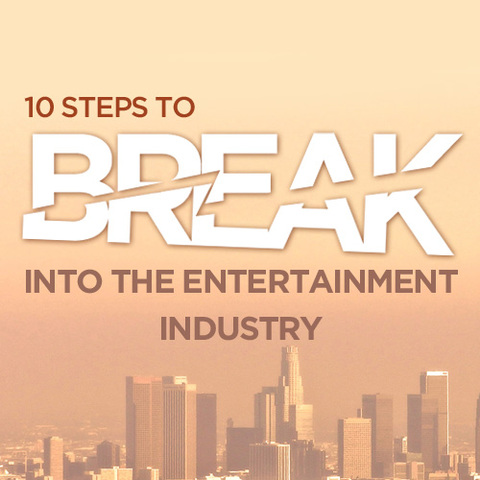Breaking Into the Entertainment Industry: A Complete Guide for Aspiring Professionals

Break into the entertainment industry: understand the landscape
The entertainment industry represents a vibrant ecosystem of creative professionals work across film, television, music, theater, digital media, and more. Break into this competitive field require a strategic approach, persistence, and a clear understanding of how the industry operate.
Many aspire entertainment professionals share a common misconception: that success come principally through talent or luck. While these factors matter, establish a sustainable career demands practically more — include industry knowledge, professional relationships, and strategic positioning.
Identify your entertainment industry path
Before develop your strategy, clarify which sector of the entertainment industry aligns with your skills and passions:
On camera and performance roles
- Act (film, television, theater, voice over )
- Presenting / hosting
- Musical performance
- Comedy
- Dance
Behind the scenes creative roles
- Direct
- Produce
- Screenwriting
- Cinematography
- Production design
- Costume design
- Music composition
Technical production roles
- Sound engineering
- Lighting design
- Video editing
- Visual effects
- Animation
Business and management roles
- Talent management
- Cast
- Marketing and publicity
- Entertainment law
- Artist representation
Each path require different skills, education, and entry strategies. Identify your specific area of interest allow you to target your approach efficaciously.
Essential education and training for entertainment careers
While formal education isn’t invariably mandatory in entertainment, specialized training can provide crucial advantages:
Formal education options
- Perform arts schools and conservatories
- Film schools
- Communications and media programs
- Music schools and programs
- Technical production programs
- Business programs with entertainment focus
Alternative training approaches
- Workshops and masterclasses
- Private coaching
- Online courses and certifications
- Community theater and local productions
- Self direct learning through books and resources
The value of education varies by specialty. For technical roles like sound engineering or cinematography, formal training oftentimes prove essential. For creative roles like acting or writing, a combination of formal and informal education typically work intimately.
Build your portfolio and demo materials
Entertainment industry gatekeepers need evidence of your capabilities. Develop professional materials tailor to your field is crucial:

Source: brazzil.com
For performers
- Professional headshots that represent your casting type
- Demo reels showcase your range and abilities
- Voice over samples (if applicable )
- Professional resume highlight relevant experience
For writers and content creators
- Write samples (scripts, treatments, articles )
- Spec scripts for exist shows
- Original pilot scripts
- Short films or web series
For technical and production professionals
- Portfolio of work samples
- Before / after demonstrations of your contributions
- Technical reels highlight specific skills
Eve without professional credits, you can create compelling materials through student productions, independent projects, or collaborations with other emerge creators.
Network: the cornerstone of entertainment success
The entertainment industry operate mostly on relationships. Effective networking can open doors that remain closed to yet the virtually talented individuals work in isolation.
Develop your networking strategy
- Industry events, film festivals, and conventions
- Professional organizations and guilds
- Alumni networks from educational institutions
- Social media platforms (peculiarly lLinkedInand twitter )
- Industry specific online communities
Network best practices
Successful networking in entertainment require finesse:
- Focus on build genuine relationships quite than transactional connections
- Offer value before ask for favors
- Follow up quickly after meetings
- Stay systematically visible without become intrusive
- Support others’ projects and celebrate their successes
Remember that everyone in the industry — from assistants to executives — hold network value. Many successful careers begin with connections to people who weren’t nonetheless powerful but grow alongside the relationship.
Find your first industry opportunities
Break in oftentimes require accept entry level positions that provide access and learn opportunities:
Internships and assistant positions
- Production assistant roles
- Agency mailrooms and assistant desks
- Studio internship programs
- Writers’ room support staff
- Assistant to established professionals
Independent and low budget productions
- Student films
- Independent feature
- Web series and digital content
- Local theater productions
- Podcast production
Create your own opportunities
- Self produce content
- Collaborative projects with peers
- YouTube channels and social media platforms
- Podcasts and audio drama
These entry points may not seem glamorous, but they provide crucial industry exposure, skill development, and relationship build opportunities that can lead to advancement.
Understand industry gatekeepers
Different entertainment sectors have specific gatekeepers control access to opportunities:
For actors and performers
- Cast directors
- Talent agents and managers
- Directors and producers
For writers and content creators
- Literary agents
- Development executives
- Showrunners
- Publishers and editors
For technical and production professionals
- Production managers
- Department heads
- Production companies
- Studio executives
Research the specific gatekeepers relevant to your field and develop strategies to get your work in front of them lawfully.
Securing representation: agents and managers
For many entertainment careers, professional representation become essential for access higher level opportunities:
Understand the difference
- Agents: focus principally on secure work and negotiate contracts
- Managers: provide career guidance, development, and strategic planning
When you’re ready for representation
Signs you’re prepared to approach agents or managers include:
- Professional quality portfolio materials
- Some professional credits or equivalent experience
- Clear understanding of your marketable qualities
- Industry references who can vouch for your work
Find the right representative
- Research agencies represent professionals at your career stage
- Seek referrals from industry contacts
- Attend showcases and events where representatives scout talent
- Consider start with smaller boutique agencies before pursue major firms
Remember that representation isn’t the goal itself but a tool to advance your career. The right representative believe in your potential and have the connections to help you realize it.
Leverage digital platforms and social media
The digital revolution has created new pathways into entertainment:
Build your online presence
- Professional website showcase your work
- Strategic social media profiles on platforms relevant to your field
- Content creation demonstrate your skills
- Engagement with industry conversations and communities
Digital distribution channels
- YouTube, TikTok, and Instagram for visual content
- Podcast platforms for audio content
- Self-publish platforms for write work
- Streaming platforms accept independent submissions
Digital success can translate to traditional industry opportunities, as many professionals nowadays scout talent through online channels.
Understand industry economics
Financial realities in entertainment require strategic planning:
Support yourself during the journey
- Flexible” survival jobs ” hat accommodate auditions and opportunities
- Industry adjacent work that build relevant skills
- Freelance opportunities in your field
- Financial planning for irregular income patterns
Understanding compensation structures
- Union rates and regulations
- Project base versus ongoing employment
- Royalties and residuals
- Intellectual property rights
Develop financial literacy specific to entertainment help you make sustainable career decisions and avoid exploitative situations.
Navigate rejection and persistence
The entertainment industry involve high levels of rejection for yet the virtually successful professionals:
Develop resilience
- Separate professional rejection from personal worth
- Learn from feedback when available
- Celebrate small wins along the journey
- Build a support network of fellow industry professionals
Strategic persistence
- Continue to create and improve disregarding of external validation
- Adjust approaches base on results
- Recognize when to pivot versus when to persist
- Set realistic timelines and benchmarks
Virtually” overnight successes ” n entertainment represent years of persistent effort behind the scenes.
Geographic considerations: entertainment hubs
While digital technology has decentralized some opportunities, major entertainment hubs ease offer significant advantages:
Primary entertainment centers
- Los Angeles: film, television, and music center
- New York: theater, publishing, and television
- Atlanta: grow film and television production
- Nashville: music industry hub
- London: theater and international productions
Strategic approaches to location
- Research which locations advantageously serve your specific field
- Consider temporary relocations for pilot season or specific projects
- Build connections in major hubs yet if base elsewhere
- Leverage regional opportunities as stepping stones
While relocation isn’t mandatory for all entertainment careers, proximity to industry centers typically accelerate networking and opportunity access.
Diversify your skills and income streams
Successful entertainment professionals frequently develop multiple relate skills:

Source: whatutalkingboutwillis.com
Complementary skill development
- Actors learn to write or direct
- Directors understand editing and production
- Musicians develop production capabilities
- Writers explore produce
Create multiple income sources
- Teaching and coach in your specialty
- Create educational content
- Consult for businesses need creative expertise
- Develop intellectual property with multiple applications
This diversification creates both creative fulfillment and financial stability in an industry know for cyclical opportunities.
Ethical considerations and industry culture
Understand entertainment’s cultural landscape help navigate complex situations:
Professional boundaries
- Recognize and avoid exploitative situations
- Understand appropriate professional behavior
- Know your rights regard safety and working conditions
Industry evolution
- Increase focus on diversity and inclusion
- Change power dynamics and accountability
- New pathways for underrepresented voices
The entertainment industry continues to evolve in response to cultural shifts, create both challenges and opportunities for emerge professionals.
Long term career development
Beyond break in, sustainable entertainment careers require ongoing growth:
Continued learning
- Stay current with industry trends and technologies
- Advanced training in your specialty
- Expand into related disciplines
Career evolution
- Strategic pivots base on industry changes
- Leverage experience into new opportunities
- Build toward creative autonomy
The virtually successful entertainment careers typically span decades and involve multiple evolutions in response to both personal growth and industry changes.
Success stories and alternative paths
While traditional paths exist, many successful entertainment professionals find unconventional routes:
Notable alternative entries
- Creators discover through viral content
- Professionals who transition from adjacent industries
- Self produce projects that gain industry attention
- Collaborative independent work that build reputations
These stories remind us that persistence, creativity, and adaptability oftentimes matter more than follow prescribed paths.
Final thoughts: your entertainment industry journey
Break into entertainment require balance practical strategy with creative passion. The virtually successful professionals combine business savvy with artistic integrity, understand that both elements are essential.
Remember that entertainment careers seldom follow linear trajectories. Progress frequently come in unexpected bursts after periods of apparent stagnation. The key lie in consistent growth, relationship building, and creative development yet when external validation seem distant.
Peradventure virtually significantly, define success on your own terms. While fame and fortune represent common entertainment aspirations, many professionals find fulfillment in creative collaboration, artistic expression, and the privilege of make a living through their passion — careless of public recognition.
Your entertainment industry journey begins with a single step: identify your specific passion, develop your skills, and put yourself in environments where opportunities can find you. With persistence, strategic thinking, and authentic connection, you can build a meaningful career in this dynamic and rewarding field.






